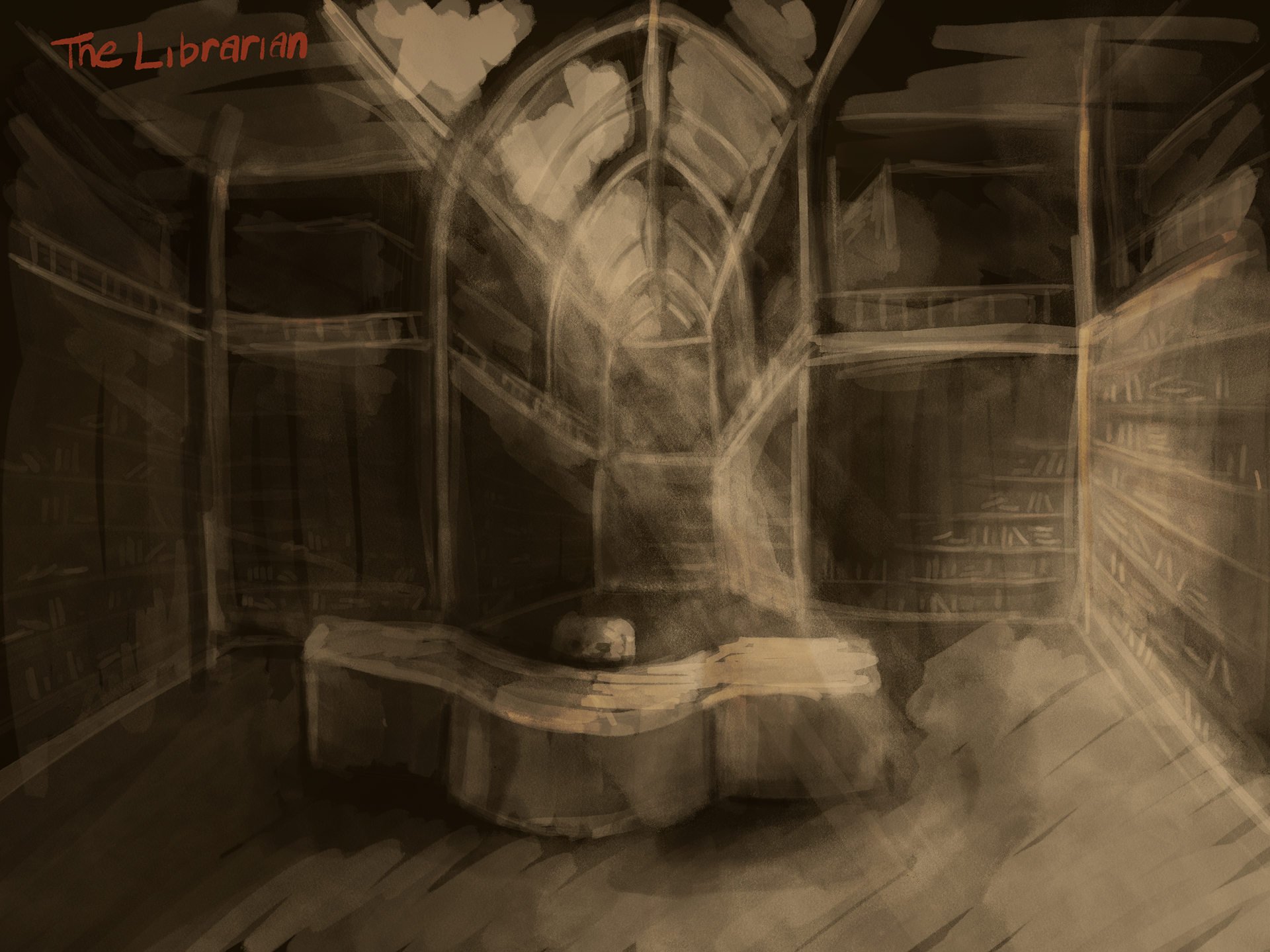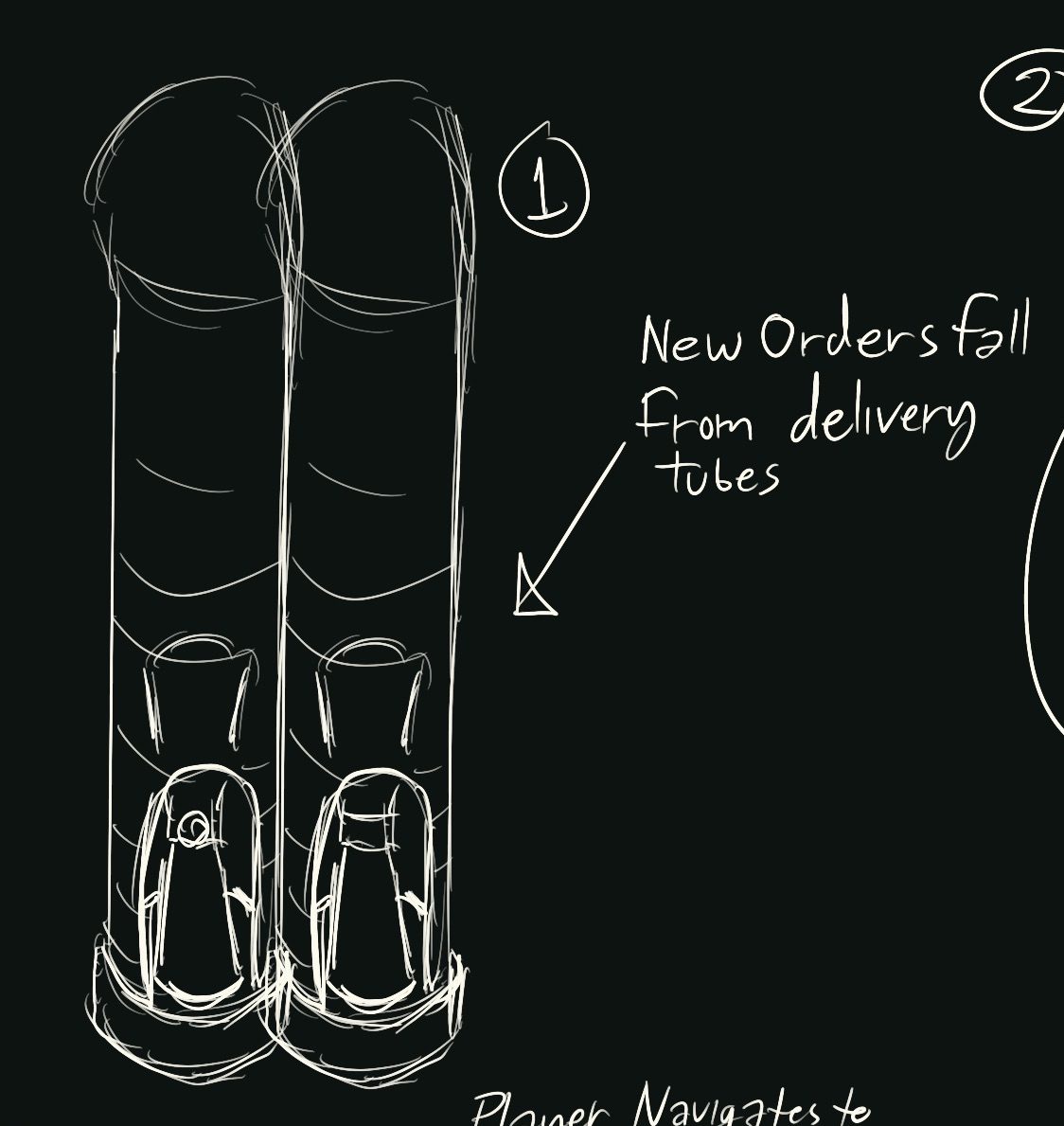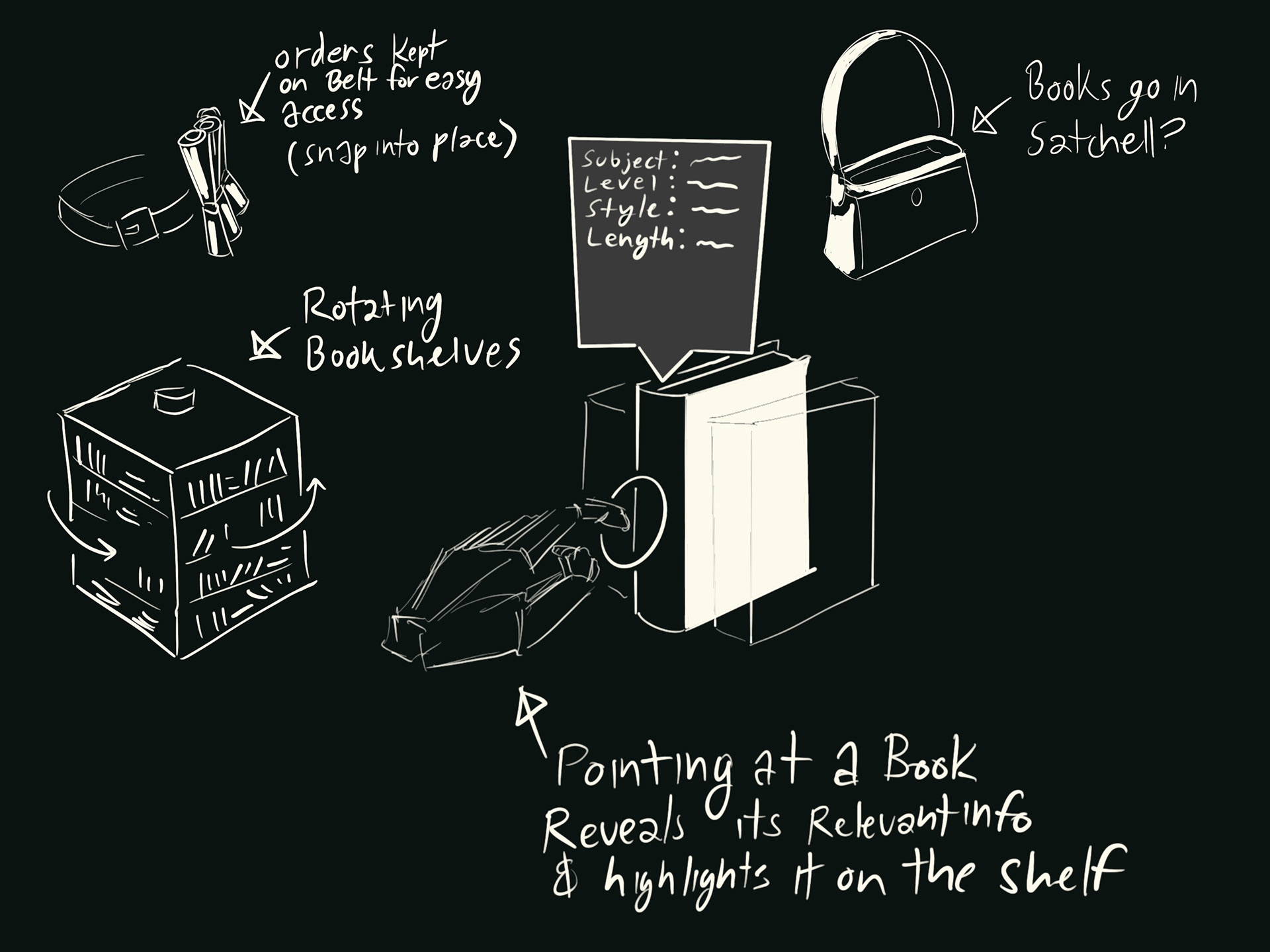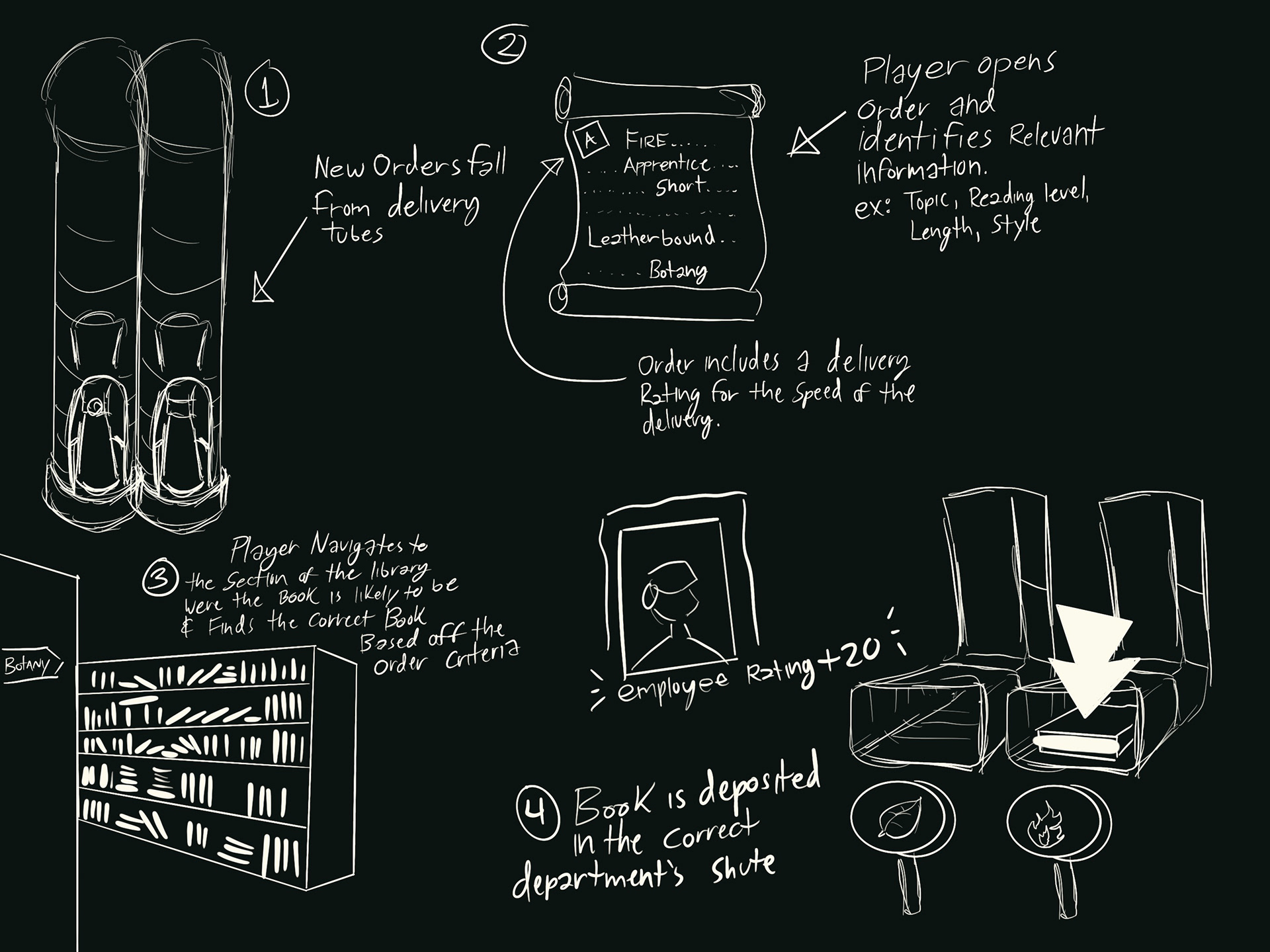Project Overview
Become the master of the library as you conquer challenges while delivering spell-books and tomes to the denizens of this institute for the arcane. In BiblioMecha, you play as a mech constructed by the students of the Institute of Unified Alchemy to assist the great librarian Osgir in his duties.
Bibliomecha was developed for ARVR 471: Immersive Game Lab where Immersive Reality students explore the vast potential of augmented and virtual reality as a medium to elevate gameplay interactions.
As a student in Interactive Design and Game Development, I joined the team as someone who had already completed a full development cycle for a studio class. My experience as a Technical Game Designer was important for filling the gaps in knowledge that the team had as Immersive Reality Students.
As Design Lead for our team, my focus was on highlighting the strengths of VR as a medium for games - and doing so in a way that could be expanded upon even after my early departure from the project.
My Contributions
Design Lead
+ Designed Core Game Loop
+ Designed the Library Level and Layout
+ Created Procedural Library Population System
- Books Organized By Genre and Category
- Expandable Title List via .csv File Import
+ Created Book Delivery + Challenge System
- Order Distribution and Status Tracking
- Optional Challenges and Score Tracking
- Expandable Challenge List via .csv File Import
+ Perforce Project Management
+ Primary Scrummaster
+ Directing and Editing of Final Trailer
+ Designed Core Game Loop
+ Designed the Library Level and Layout
+ Created Procedural Library Population System
- Books Organized By Genre and Category
- Expandable Title List via .csv File Import
+ Created Book Delivery + Challenge System
- Order Distribution and Status Tracking
- Optional Challenges and Score Tracking
- Expandable Challenge List via .csv File Import
+ Perforce Project Management
+ Primary Scrummaster
+ Directing and Editing of Final Trailer
Breakdown
As a game designer, I’ve had the opportunity to design and develop games from a variety of genres - including a first-person shooter, a side-scrolling platformer, and an isometric strategy game. Working in VR provided a brand new set of challenges.
In early discussions around our core game design, we identified a common trend among successful VR titles - that being Player Freedom. Job Simulator and its sequels are a great example of this freedom. In Job Simulator, players are given an explicit goal and various tools to accomplish them but then have the freedom to accomplish (or not accomplish) those tasks however they choose. Players are able to be as “good” or “bad” at a job as they’d like and experiment with actions that would normally be considered inappropriate in real life. For example, a player may be given a stamp to fill paperwork with but then may take the stamp and use it on things like on computer monitors or a co-worker’s face. We wanted to enable that freedom in BiblioMecha and set up a system to reward it.
The game loop of BiblioMecha is as follows: Receive a Task > Complete the Task > and Repeat!
Most tasks involve delivering specific books and each task can then be modified with specific challenges to incentivize players to get creative in their approach. One way we wanted to reward players was by giving additional points if players did things like setting a book on fire or throwing a book into a bin from very far away.
BiblioMecha was the last project I had the opportunity to work on as a student at the Savannah College of Art and Design. As such, I will not be able to participate (at least directly) as the project continues into production and post-production. With this in mind, I wanted to set the team up for success in my absence by using a feature of Unreal Engine called Data Tables. Data Tables allow developers to import .csv files from programs like Excel or Sheets where they can easily view and adjust any number of stats or variables. In the case of BiblioMecha, I created a data table of book titles and challenges.
By setting up the systems of BibilioMecha in this way, my teammates should be able to continually add to and expand the list of challenges that players may face.
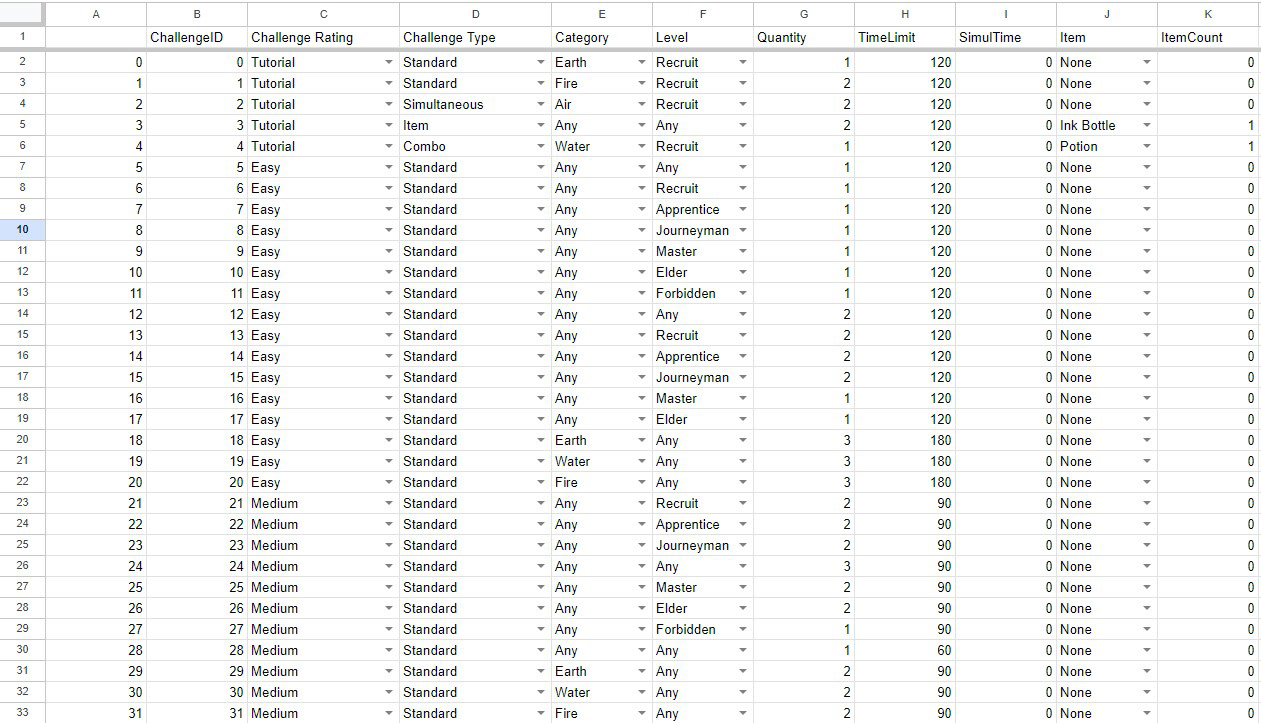
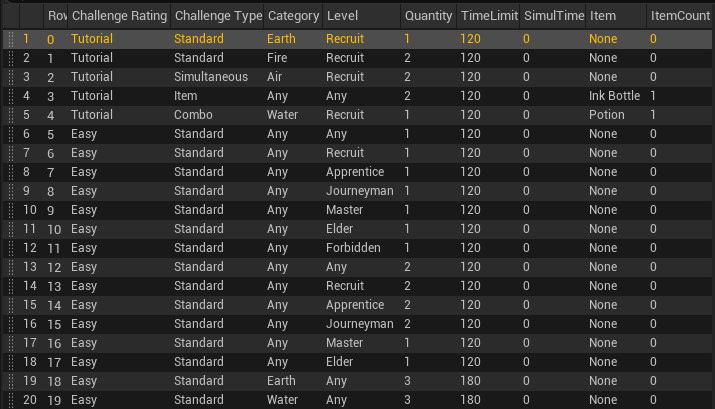
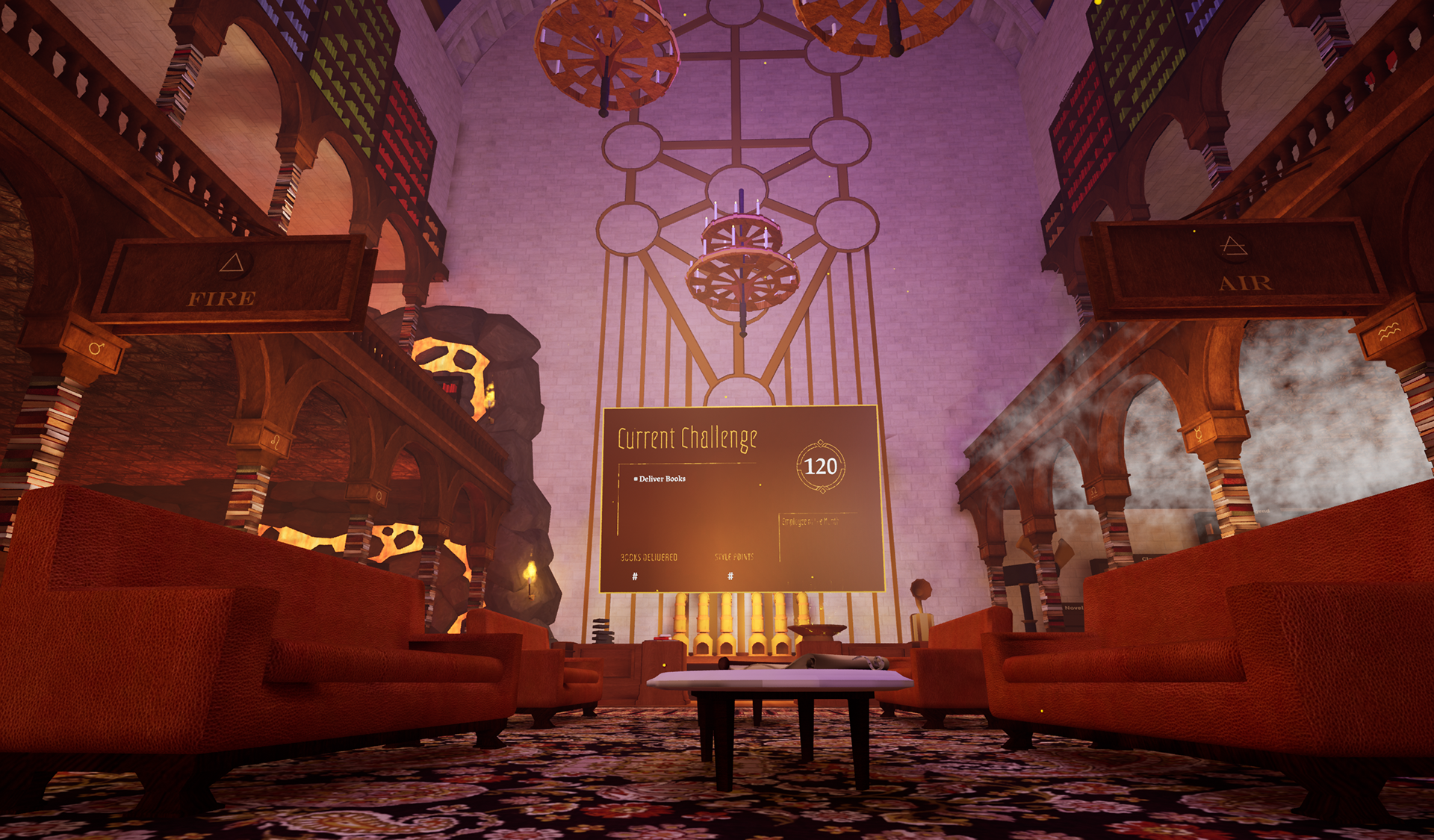
Screenshots
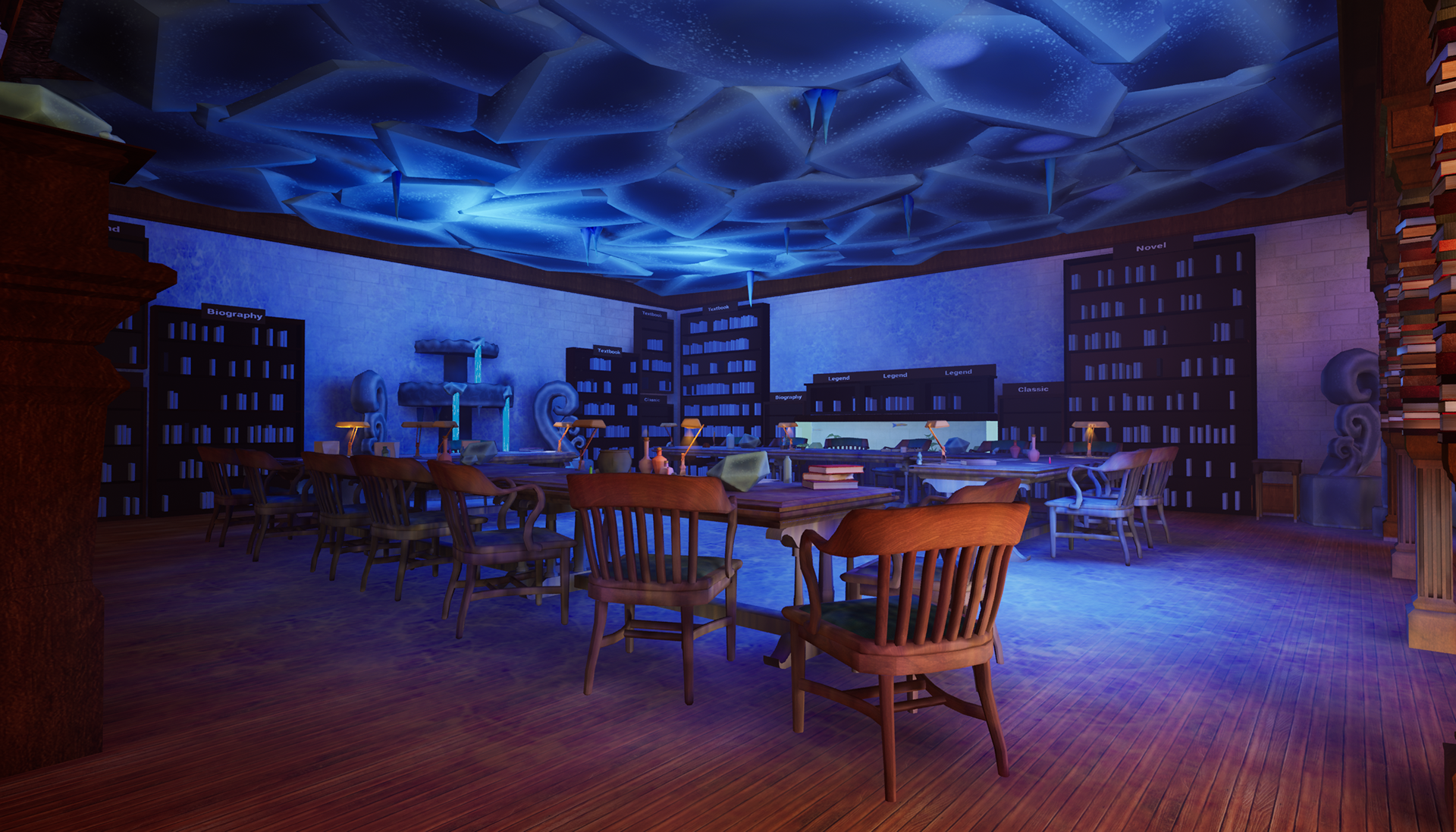
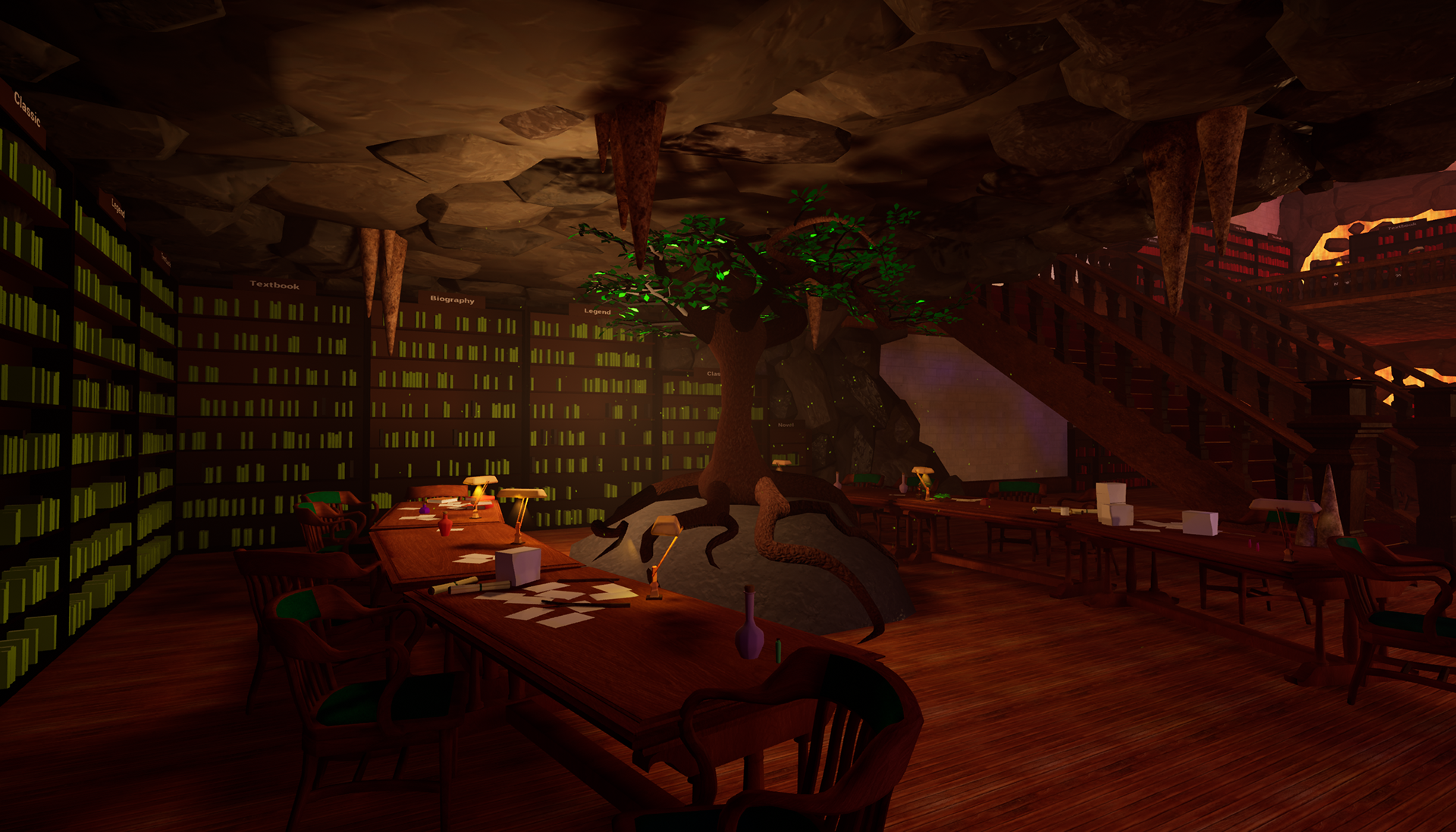
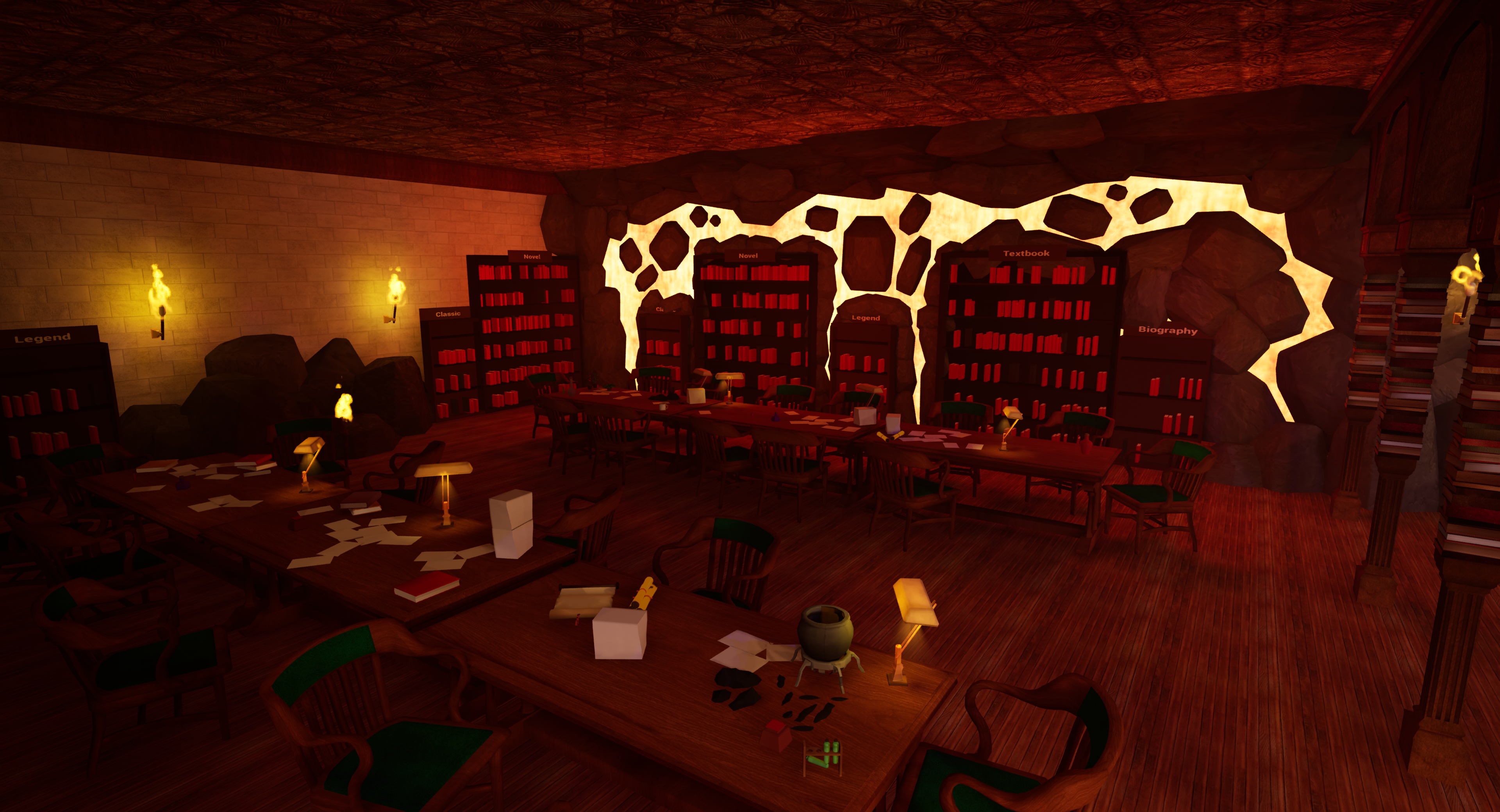
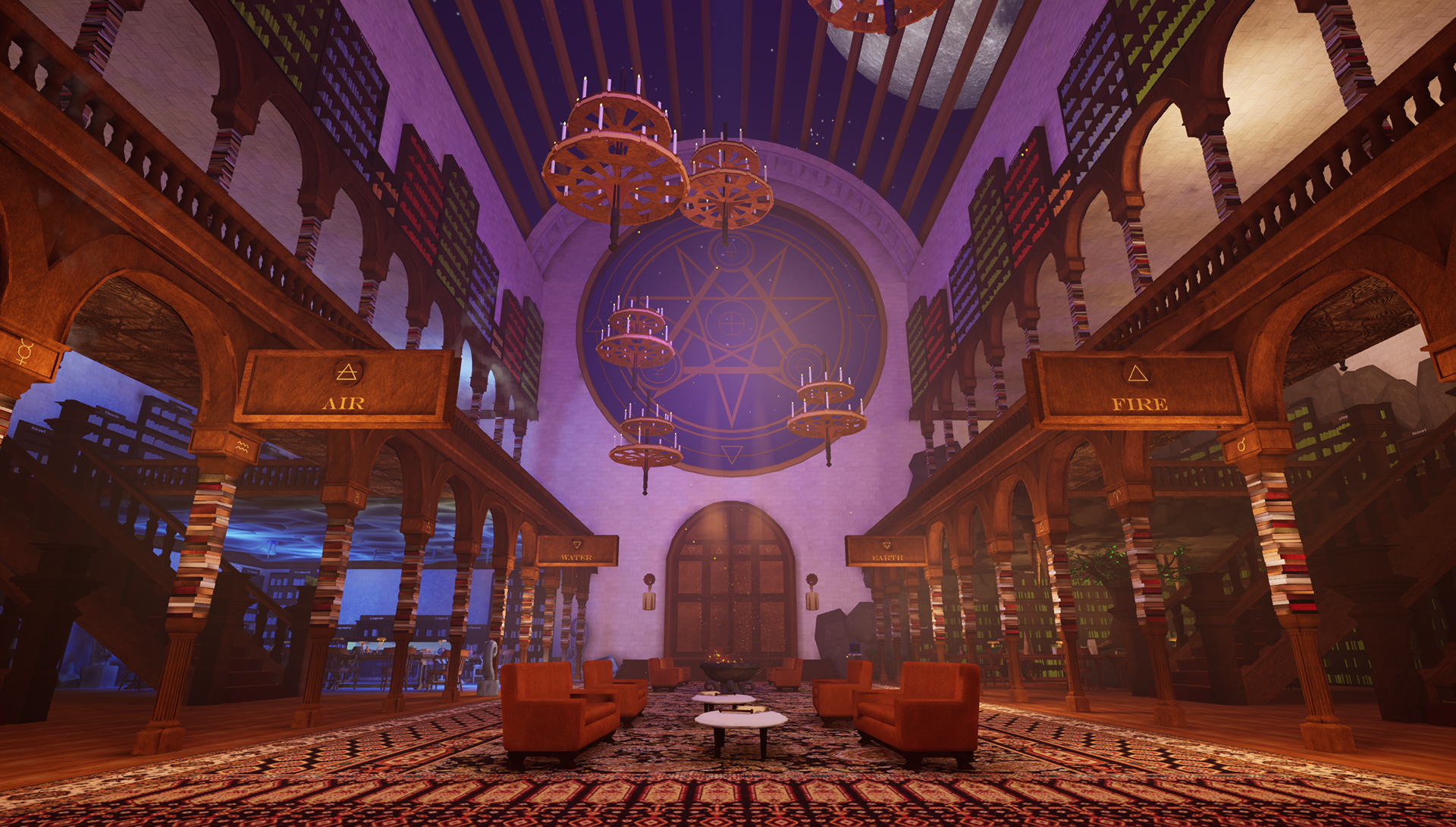
Concept Sketches by Me
